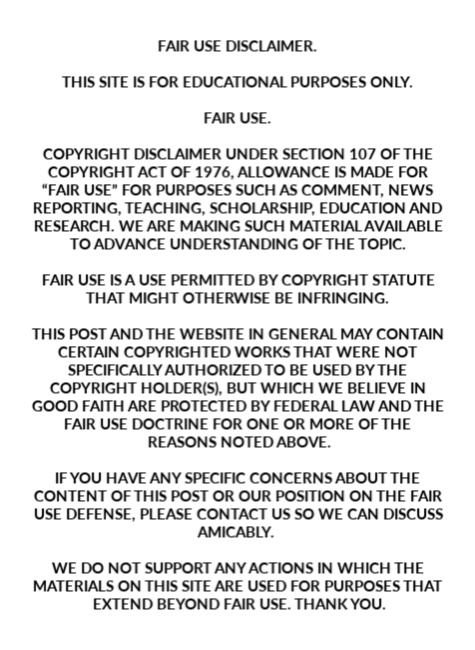
FEATURE image: “Bernie Sanders and Hillary Clinton – Caricatures” by DonkeyHotey is licensed under CC BY-SA 2.0.



By John Walsh – 4:00 pm Chicago time, April 27, 2016.
Despite the corporate media’s unabashed favoritism for Hillary Clinton when reporting the news – it is reminiscent of the Cold War days when Americans were told about the partisan propaganda at Pravda (a frightening journalistic prospect should it ever arrive in some form to America) – the delegate count from April 26, 2016’s five primaries (4 closed and 1 hybrid) comes down to this: a net gain of 52 PLEDGED delegates for Hillary Clinton over Bernie Sanders– or around 2% of the total needed to reach the magic number of 2383 to become the Democratic presidential nominee.
As of April 27, 2016, Bernie Sanders had 1299 PLEDGED delegates and Hillary Clinton 1632 PLEDGED delegates. Neither candidate will likely reach 2,383 delegates– that is, not without the party SUPERdelegates of which Clinton has 519 and Sanders has 39.
It should be well known that the Democratic Party’s nominating process as it is presently constituted is a jimied system, bloated on big money and favoring the status quo, and that its category SUPERdelegates have and will flock to Clinton.
The SUPERdelegates’ reasons to support Clinton may reflect but also transcend her qualifications to be president. The special category of delegates can also work to aid a candidate’s success who may or may not be able to win outright these primaries even under present rules deemed fair.
In Connecticut’s closed primary on April 26, for instance, Clinton won a net gain of 2 PLEDGED delegates over Sanders based on the people’s vote in that contest but she also received an additional 15 SUPERdelegates there (Bernie picked up zero in the state). In Connecticut Hillary won over 170,000 votes to gain 27 PLEDGED delegates and Sanders won over 153,000 votes to gain 25 PLEDGED delegates – or about 6,300 voters per delegate. Yet Clinton picked up those additional 15 SUPERdelegates cast by 15 fellow Americans whose vote, in this case, has a power equivalent to a bloc of 95,000 ordinary Connecticut voters and, further, basically ginned up the Clinton vote by almost 50%.
This sort of election process flouts the enshrined “one man/woman, one vote” rule. rather it is a hybrid of the ordinary voter and a handful of special voters who can beknight a candidate and those happy few in the ordinary voter pool who agree with them.
The present Clinton delegate lead and the corporate media reporting that she is the “presumptive nominee” is part chimera as it is based very much on the SUPERdelegate regime and its establishment clique. Democratic Party; my foot.

Bernie Sanders in West Virginia has a 30-point lead in voter polls over Hillary Clinton for the May 10, 2016 primary. Yet they so far split the number of pledged SUPERdelegates though no votes have even been counted.

On April 26, 2016 Hillary Clinton won Pennsylvania’s primary by 20% in the popular vote over Sanders yet was awarded 1,800% more in SUPERdelegate votes.
It should be expected that in states where Hillary Clinton won the popular vote and most of the PLEDGED delegates that she would pick up more of these SUPERdelegates.
Yet such was not the case in 2016 in New Hampshire, Colorado, Minnesota, Oklahoma, Maine, “Dems Abroad,” Michigan, Utah, Alaska, Hawaii, Washington, Wisconsin, and Rhode Island. In these 12 states (and one constituency) it was Bernie Sanders who won the popular vote and the most PLEDGED delegates but Clinton who picked up all or most of the SUPERdelegates – an additional 77 of them in fact.
In a nomination process for president based on delegate count – which delegates? – this kind of system appears or is “rigged.” Voting results in other states exacerbates the perception of politburo-like favoritism at the DNC and its SUPERdelegate regime. Namely, that when Clinton won the popular vote and most PLEDGED delegates she also still gained all or most of the SUPERdelegates. What gives, America?

In all of April 26’s five primary states, Clinton picked up 63 SUPERdelegates and Bernie Sanders picked up one (in Maryland, a state he lost).
Sanders won over 1.1 million votes for his one SUPERdelegate and Clinton won about 27,000 votes for each of hers.
SUPERdelegates are where the action is!
If this is the manner in which the Democrats nominate their party’s presidential candidate it works as a deleterious effect for that candidate’s legitimacy for the general election.
Unfortunately, it is likely some or all of these wildly unfair SUPERdelegates will facilitate the nomination of either Sanders or Clinton unless one of those candidates achieves the magic number of 2,383 in PLEDGED delegates. This is a worthy goal which still remains possible – especially for Clinton.

There are 1209 PLEDGED delegates on the table in the final 14 contests and a much smaller indeterminate number of UNPLEDGED delegates (about 195).
Based on PLEDGED delegates, Hillary Clinton would need to win from this point onward 751 of them (62%) and Sanders 1084 of them (89%). These are high and higher electoral numbers for each so one of them secures 2383 in PLEDGED delegates.
Hillary’s challenge to go into the convention with enough PLEDGED delegates has an outside hope to be realistically achievable but it remains likely she will need SUPERdelegates to put her over the top as the party’s standard bearer.
So, if an incomplete slate of PLEDGED delegates is all one needs to be nominated, why not nominate Sanders?
Under this arcane and untrustworthy nominating system, Hillary appears to hold most of the political cards. Sanders can fight on and look to bargain for platform items but the Clinton people will be looking over his shoulder to his voters.
How many of Bernie’s voters do they need to win the general election in November? From that point, deals can be brokered. If Clintonites can peel off enough Bernie voters outright with corporate media-driven stories about party unity and fear mongering over Donald Trump, then any Clinton-Sanders deal may be difficult. But if enough Bernie supporters getting on board for Clinton is problematic –if they clamor for Sanders to be the nominee or on the ticket, or that more of their political beliefs be incorporated into the 2016 Democratic Party platform suchas on campaign finance reform, breaking up the big banks, free public university education, universal medical insurance, a fracking ban, a $15 minimum wage, etc.– all positions spurned by Clinton and her voters – then things should get hugely interesting in Philadelphia in July.
Further, for each of the 14 upcoming primary contests – from Indiana on May 3 to Washington, D.C. on June 14 – Clinton already has 106 SUPERdelegates committed to her candidacy (Bernie has 8). Not a single vote by the people has been counted in any of those places. Welcome to the party.

NOTES
30 point lead in WV – http://mic.com/articles/136039/sanders-has-a-30-point-lead-over-clinton-in-west-virginia-here-s-why-that-matters#.MU5rBef2z
For primary election results – see: http://www.politico.com/2016-election/results/map/president
For state by state delegate distribution – see: http://www.electionprojection.com/democratic-nomination-delegates/




